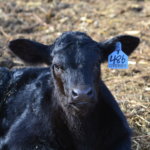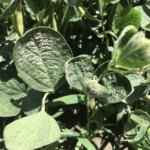
A Weekly Update from the Red River Farm Network
Monday, December 28, 2020

Top Stories of 2020 – 1. COVID-19 Dominates the News, and the Impact is Felt Worldwide – Unbelievably, supply chain disruptions resulted in animals being euthanized and milk dumped. More meals are eaten at home and fewer miles are driven; influencing everything from foodservice demand to ethanol production. During the early stages of the virus, food and farming were determined to be essential industries.
2. Government Assistance Boosts Farm Income – USDA reports net farm income of nearly $120 billion, the highest total since 2013. Thirty-nine percent of that total is from government payments, including the Coronavirus Food Assistance Program and Paycheck Protection Program.
3. New Opportunities Seen for Agricultural Trade – On January 15, the U.S. and China sign the phase one trade deal. As a result, China agrees to purchase $80 billion in U.S. ag products over two years. Market access also grew with trade agreements with Canada, Mexico and Japan.
4. The 2019 Harvest Season Extends into 2020 – Combines continued to roll in the winter and spring, hoping to salvage last year’s crop. Saturated fields were evident during the planting season, resulting in 9.3 million acres of prevented plant acreage this past year. Of that total, North Dakota had more than 2.5 million acres of PP. Going into 2021, abnormally dry conditions are a worry.
5. DOJ Launches an Investigation into the Cattle Markets – Responding to requests from ranchers, farm organizations and farm-state lawmakers, the Department of Justice begins an investigation into anti-competitive activity by the major beef packers. Allegations of price-fixing were heard after the Holcomb, Kansas plant fire in August, 2019 and ramped up with the onset of COVID-19.
6. After 30 Years in Congress, House Agriculture Committee Chairman Collin Peterson Unseated – A founding member of the conservative Blue Dog Democratic Caucus, Representative Collin Peterson was defeated by Republican Michelle Fischbach. Peterson is the only Minnesotan to ever chair the House Agriculture Committee and was the guiding hand for numerous farm bills. Senate Agriculture Committee Chairman Pat Roberts and House Agriculture Committee Ranking Member Mike Conaway did not seek reelection. With Peterson’s defeat, 75 years of institutional memory has been lost from ag committee leadership.
7. The Grain Markets Rally – An unexpected bull market began in August and continues today. USDA shocked the trade with its September supply/demand report, bringing more attention to the dry South American conditions. Counter-seasonal basis opportunities were also seen during harvest.
8. Biden Overcomes a Rural-Urban Divide to Win the Presidency – President Trump maintains support from the majority of rural voters, but it was not enough to win a second term. The Secretary’s suite of offices at the Agriculture Department is known as ‘the Cage’ and this space will have a familiar occupant. President-elect Biden picked former Ag Secretary Tom Vilsack for another turn at USDA.
9. What’s Next for Dicamba? – On June 3, the courts vacated the registration of three dicamba formulations sending farmers scrambling for weed control options. Just before the election, EPA Administrator Andrew Wheeler announced the five-year approval of dicamba. In December, a handful of activist groups were back in court challenging the use of this weedkiller.
10. Farm Meetings Respond to the New COVID World – Due to the need for social distancing, farm organizations were forced to cancel or postpone face-to-face meetings. A few events moved forward, including the Big Iron Farm Show and the South Dakota Farm Bureau Annual Meeting. Other events transitioned to a virtual experience. Zoom calls were a rarity before the pandemic began, but now are commonplace.
Despite Reservations, Trump Signs Spending/COVID Relief Bills – President Donald Trump has signed the omnibus spending bill and the coronavirus economic stimulus package. This action prevents a government shutdown, which would have started at midnight tonight. Last week, Trump called the bill “a disgrace” and hinted a veto was possible. In a statement released last night, Trump said he still wants wasteful spending removed from the bill. However, Congress is not required to make any changes.
WHIP+ Program Gets More Funding to Continue Payments – With President Trump’s signature of the government funding bill, USDA will honor all 2018 and 2019 crop losses in the WHIP+ program and fund quality loss adjustments. For months, Northern Plains farmers have been waiting for their WHIP+ program payments or for an update on the remaining half of the 2019 payment. For the last month, WHIP+ program applications were stalled due to funding delays. This additional $1.5 billion for the WHIP+ program is from a reallocation of unused WHIP block grant funding and $1 billion in unspent funds from the first Coronavirus Food Assistance Program.
WHIP+ Program Quality Loss Adjustment Expected in 2021 – North Dakota Senator John Hoeven tells the Red River Farm Network he expects USDA to have more details about the quality loss adjustment piece of the WHIP+ program in early January. “FSA had to get the other programs out. The good news now is there’s enough money to finish out the program.”

Latest COVID Relief Package Brings Benefits for Cattle Producers – The newly passed COVID-19 relief package includes $1.4 billion in additional assistance for cattle producers who sold into a depressed market after April 15. The payment will be for cattle inventory from CFAP 1.0 and not require a new sign-up process. Unlike CFAP 2.0, the new funding will cover breeding stock. Estimated payment rates per head include: $63 for slaughter/fed cattle, $14.75 for slaughter/mature cattle, $7 for feeder cattle less than 600 pounds, $25.50 for feeder cattle less than 600 pounds and $17.25 per head for all other cattle. The package also includes aid for small meat processors. Specifically, the funding provides grants for facility upgrades and inspection certifications. This would allow meat to be processed for interstate commerce. Finally, the re-authorization for Livestock Mandatory Reporting was extended until September 30, 2021, along with the passing of Dealer Statutory Trust to ensure payment protection for livestock sellers.
MN Pork Highlights the Positives of COVID Relief Bill – Earlier this year, pork producers had to euthanize hogs to minimize the backlog at processing plants. This new COVID relief package requires the USDA to provide partial reimbursement to livestock and poultry growers for depopulating herds during the pandemic. “It will be a percentage of the value, but more details are needed,” said David Preisler, CEO, Minnesota Pork Producers Association. “We’ll have to see how that value is calculated and it would just be for the value of animals themselves. There’s been other state programs that have helped on the actual disposal of the carcasses, but we also know there’s been some financial hurt that occurred on farms that had to put animals down. As we dig into the bill, we’ll know more specifics.” Other parts of the bill important to Minnesota pork producers include funding for state veterinary diagnostic labs and funding for inspectors at the border.

No Guarantees for COVID Relief for the Biofuels Industry – The new COVID-19 relief package allows the agriculture secretary to make payments to biofuels producers, but there is no guarantee it will happen. American Coalition for Ethanol CEO Brian Jennings says ultimately, it will be up to the next agriculture secretary to help the biofuels industry with additional COVID assistance. Jennings is hopeful. “We’re sort of in, but we have more work to do. That will require us to work with a new agriculture secretary. The nominee, Tom Vilsack, has used USDA funding to help the biofuels industry in the past. He created the original biofuels infrastructure program to provide money to retailers to help them install pumps for E15 and higher blends. We think we have the ability to work with him and free up some funds.” Jennings says it’s been challenging to cope with the impacts of COVID, but the biofuels industry is surviving.
More Paycheck Protection Program Benefits – The latest COVID-19 relief package provides $284.5 billion to reopen and strengthen the Paycheck Protection Program for first time and second time borrowers. PPP loans are reserved for businesses with fewer than 300 employees that sustained a 25 percent loss in revenue. Maximum loan amounts will be limited to $2 million. There’s also a specific farmer and ranchers calculation included in the PPP.

Rural Perspectives – Even though the soybean markets leveled off at the beginning of December, that market has found its foot ever since. AgCountry Farm Credit Services Market Education Specialist Katie Tangen says South American weather continues to be a driver. “We continue to see a lot of (soybean) demand. It is uncertain if Brazil will be able to fulfill that demand over the next six months.” Hear more from Tangen on a rally in the markets, the latest COVID-19 relief package and more in the latest Rural Perspectives podcast.
Agriculture Recovery Expected in 2021 – CoBank’s 2021 outlook sees a year of recovery coming. CoBank Knowledge Exchange Division Manager Tanner Emke says that is good news for agriculture. “Especially for those impacted in the food service sector, because of so many restaurants and schools being closed. Now that we have some good vaccines along the way, the sector is expected to have a strong rebound in 2021. That’s good news for animal protein, dairy and crop sectors.” Emke also sees commodity prices holding firm. “It’s driven largely by purchases from China and the dry conditions in the key growing regions caused by La Nina.”

Don’t Forget WHIP+ Program in 2020 Tax Management – MinnStar Bank Farm Management Analyst Kent Thiesse says farmers need to account for the WHIP+ program payments when doing their year-end tax management. “Funding hadn’t been authorized for some of those payments, but now, the USDA has authorized the funding. Those payments will go out as soon as possible and a lot of farmers will get those payments by the end of the year. Farmers have been busy with tax management and for some, it’s been more of a challenge, because of all of the direct payments received.” The payment process likely varies from county-to-county, depending on processing progress with WHIP+ applications at local FSA offices. “If farmers don’t already have the money, they should check with their local FSA office on the status.”
Vaccinations Sought for Meat and Poultry Workers – The North American Meat Institute and the United Food and Commercial Workers Union have sent a joint letter to all 50 U.S. governors, asking that frontline meat and poultry workers be prioritized for the COVID-19 vaccination. This sector includes 500,000 people in the workforce. On-site vaccination services are being offered.
Aussie-China Barley Trade Dispute Moves to the WTO – Australia is asking the World Trade Organization to intervene in its trade dispute with China. The relationship between the two countries soured over the past year-and-a-half. In May, China imposed an 80 percent tariff of Australian barley. The WTO has started a formal 60-day time period for discussions before a dispute settlement panel is created.
UK-EU Come to Terms on a Trade Deal – Just days before the BREXIT transition period was scheduled to end, the United Kingdom and European Union have finalized a trade agreement. This deal provides tariff-free market access for food and farm products. UK and EU farm leaders have praised the agreement, but warn border checks and additional paperwork will likely push food prices higher. Details are still being worked out.
COFCO: China to Import a Record Amount of Soybeans – China is expected to import more than 100 million tons of soybeans in 2020. If realized, that would be an all-time record high. An executive with the state-owned agribusiness company, COFCO, said China is rebuilding its swine herd after it was destroyed by African Swine Fever. The record demand is due to China’s demand for protein. China imported 92 million tons of soybeans last year.
What’s Hot, What’s Not in the Markets – In this edition of What’s Hot, What’s Not in the Markets, Advance Trading Risk Management Advisor Tommy Grisafi outlines the multiple-year highs in the corn trade and a stronger bitcoin market. Grisafi also offers a cautionary note about losing control of your grain in a bull market.
Demand Remains Strong for U.S. Soybean Meal – Domestic soybean meal demand remains strong. AGP Merchandising Manager Adam Piper says at the start of COVID, demand was starting to shift. “Even through COVID challenges, soybean meal demand stayed steady and now, with heavy exports out of the Pacific Northwest and the Gulf of Mexico, demand has been very good. NOPA crush has been very strong the last few months.” The AGP soybean processing facility in Aberdeen, South Dakota continues to run hard. “We want to thank everyone for their support,” says Piper. “We’ve seen a positive response in terms of customers and producers embracing us being there.”

An Acreage Battle – Higher prices for corn and soybeans may incentivize local farmers to change the acreage mix for next year. The Money Farm market analyst Luke Swenson says seed companies are prepping for strong demand for these crops. “Ironically, the growers out west who had sworn off corn from the last few years bought corn again for next year. We think wheat and specialty crops will need to actually pull prices higher to get the acres they want next year.”
Spring Wheat Acres at Risk – Van Ahn and Company market analyst Kristi Van Ahn thinks spring wheat is at the most risk of losing acres in 2021. “Minneapolis Wheat needs to wake up right now or there won’t be much planted. It works to plant soybeans all the way up to Canada.” Soybeans have been building better infrastructure across the Northern Plains making it more competitive. “The grain elevators in the Dakotas can get attractive bids from the PNW. Seeing AGP come up in South Dakota, it’s pulled beans and given them a more competitive edge.”
Canola Minute – The canola market continues to maintain strength this winter. Find out more from Northern Canola Growers Association Executive Director Barry Coleman in the latest Canola Minute.

American Soybean Association Focuses on 2021 Policy Priorities – Heading into 2021, the American Soybean Association is focusing on policy priorities with a new administration and Congress. Top policy priorities will be COVID response and an infrastructure package. “I think infrastructure is going to be high on the list for the incoming administration and I think there’s support in Congress,” said Steve Censky, CEO, ASA. “Obviously, a carve out for rural America makes sense. Broadband will be at the top of a list as part of the infrastructure package.” Then, it’s trade. Keeping the current trade agreements moving forward, like the U.S. and China phase one deal and U.S.-Mexico-Canada Agreement, will be important. “Eventually, let’s look at expanding new free trade agreements.” said Censky. “Another big focus of the administration will be climate change. We want to be part of that conversation, but we need to make sure the solutions proposed actually work for farmers.”
Argentine Soy Crush Companies Make Offer to Port Workers – In an effort to end the port worker and soybean crush facility workers strike, Argentina’s soybean crush companies are offering a salary increase of 35 percent plus a 70,000 Argentine peso ($840) COVID bonus. These workers are demanding wage increases big enough to offset inflation and risks from working during the COVID-19 pandemic. The workers unions have yet to respond to the latest offer. The strike is nearing 20 days and Argentina’s government is urging the parties to meet on Tuesday to resolve differences.
Beet Stock Snapshot – According to Acres & Shares broker Jayson Menke, last week 200 American Crystal Sugar Company beet shares were brokered at $3,600 per share. Stay up to date on the latest beet stock numbers here
One Million Acre Goal Established for MN Ag Water Quality Certification – Minnesota Governor Tim Walz wants farmers in his state to enroll one million acres in the Minnesota Agricultural Water Quality Certification Program by the end of 2022. Walz put that goal out there, saying this program is good for the environment and the farm economy. Since this program began six years ago, 977 farms totaling 685,000 acres have been certified in Minnesota. Once certified, a farm is in compliance with new water quality laws and regulations for ten years.
SD Ag Dept. Merger Gets Attention Going into 2021 – The South Dakota Agriculture Department is starting to merge with South Dakota’s Environment and Natural Resources Department. The current secretary for both departments, Hunter Roberts, says the goals of the merger are to save money and provide better service. “We’re hoping we can be more efficient in the way we regulate in the state.” The merger is expected to get attention as the South Dakota State Legislature meets in the next few weeks. Governor Kristi Noem will issue an executive order on the merger within the first five days of the session. If the Legislature doesn’t act, Roberts says the merger becomes final within 90 days. “If the Legislature disapproves of the merger, the merger won’t happen.” Lawmakers are asking questions on the merger, but so far, Roberts hasn’t met any with a resolution to disallow. If the merger continues to move forward, Roberts would likely continue to serve as secretary.
Minnesota Beef Update – The Minnesota Beef Council wishes everyone a Merry Christmas and a Happy New Year! Hear more from CEO Kelly Schmidt in the latest Minnesota Beef Update.
Animal Rights Activist Punks Fox Business Network – The head of an anti-meat activist group posed as the CEO of Smithfield Foods in a Wednesday interview on Fox Business. The television host, Maria Bartiromo, thought she was talking with Smithfield CEO Dennis Organ, but it was actually an animal rights activist, Matt Johnson of Direct Action Everywhere. The six minute interview began by focusing on the steps taken in the meatpacking industry to control the spread of coronavirus. However, the activist eventually blamed animal agriculture for new infectious diseases and environmental problems. National Pork Producers Council President Howard Roth said this stunt was “reprehensible.”
USDA Makes Downward Adjustments in Quarterly Hogs & Pigs Report – The total inventory was down one percent from one year ago. The market hog supply declined one percent. USDA reported the largest quarter-to-quarter decline in the breeding herd since 2014. Independent market analyst Dale Durcholz says the biggest surprise was the numerous revisions USDA made to previous reports. “The difficulties we had in the slaughter industry and the shift in terms of when hogs were slaughtered and we really don’t know how many hogs were eventually euthanized. That creates a real nightmare for an analyst trying to utilize last year’s numbers and it will probably continue to add volatility here.”
Placement is Key – There are three major trait platforms available to soybean farmers right now and BASF Soybean Agronomy Lead Marc Hoobler says each system offers good weed control. Hoobler thinks it is important to focus on the right variety for each field. “There’s no such thing as a perfect variety. However, a lot of these soybean varieties with proper placement can help us maximize the chance for success.” Hoobler says this is the perfect time for a needs assessment. “What we like to do with growers is to sit down and do some planning for the next crop.”
Corn Matters – Scholarships are now available from the Minnesota Corn Growers Association. Learn more form board member Jean Knakmuhs in the latest Corn Matters.
The Potential is There for Corn Rootworm Issues – Corn rootworm is considered the most economically challenging pest nationwide. Due to the life cycle of the corn rootworms, adults lay eggs at the base of the corn plant in one season and the larvae are there at the beginning of the next growing season to feed on corn roots. Syngenta Head of Agronomy Andy Heggenstaller says this is a multi-year problem. “You have this multi-year corn pest; what happens in one year have large ramifications for the challenges seen next year.” Traits are the base of a corn rootworm control strategy. Rotating to another crop can also break the lifecycle of the pest. There is the potential for very high populations of corn rootworm. “We observed very high pressure this year. We had very high beetle counts recorded and if we have a situation where it is dry in June, I think the potential for the larval population that feed on the corn roots to be among the greatest risks we’ve seen in recent years.”

Dry Bean Scene – Trade, an optimistic outlook and an early start to the planting season are all highlights from the first half of 2020. Hear more in this Year in Review edition of the Dry Bean Scene, made possible by the Northarvest Bean Growers Association.
Ontario Beef Plant to Reopen on December 29 – Cargill will reopen its Guelph, Ontario beef processing plant on Tuesday. The facility shut down on a voluntary basis last week after a large segment of its workforce tested positive for COVID or were forced to quarantine. This plant has a daily slaughter capacity of 1,500 head.
USDA Seeks Feedback on Biotech Framework – The USDA wants feedback on modern regulatory biotech framework in order to transition portions of the FDA’s pre-existing animal biotech regulatory oversight. The framework covers animal health, efficacy, food safety evaluation and food storage regarding biotech animals. Last year, President Donald Trump directed federal agencies to modernize regulatory framework for ag biotech products and establish regulatory approaches to the product’s risks and promote innovation. USDA will publish this public comment to fulfill Trump’s executive order.

Environmental Groups Challenge EPA’s Dicamba Registration – As expected, environmental groups are challenging the EPA’s decision to re-register three dicamba products. The National Family Farm Coalition, Center for Food Safety and others filed a five-page document in the U.S. Court of Appeals for the Ninth Circuit, the same court involved in the 2020 lawsuit. According to plaintiffs, the EPA failed its legal duties to ensure the pesticide wouldn’t cause unreasonable harm for farmers, communities and the environment. Read the press release.
A Rebranding for Glencore Agriculture – Glencore Agriculture is rebranding itself as Viterra on a global basis. The new identity is effective immediately with the exception of eight countries that will go through the name change in May. Those countries include Brazil, Australia and Russia.
Corn Comments – The National Corn Growers Association Corn Yield contest features some of the best farmers for over 50 years. Learn more in the latest Corn Comments, a production of the South Dakota Corn Utilization Council and the South Dakota Corn Growers Association.
Carrie Castille Named NIFA Director – The USDA named Carrie Castille as the permanent director of the National Institute of Food and Agriculture. Castille was an assistant professor at Louisiana State University. She was appointed by USDA Secretary Tom Vilsack to the National Ag Research, Extension, Education and Economics advisory board from 2010 to 2017. Castille begins the new role on Monday, January 4.
Rominger Passes – Former Deputy Agriculture Secretary Richard Rominger has died. Rominger, 93, was in that role at USDA during the entire Clinton presidency. Previously, Rominger was California’s Secretary of Food and Agriculture.
MN Corn Industry Mourns the loss of Gerald Mulder – Gerald Mulder, 73, Renville, Minnesota has died. Mulder was a longtime member of the Minnesota Corn Growers Association board and received an honorary lifetime membership award earlier this year. Mulder was also honored with a distinguished service to agriculture award from the Minnesota House of Representatives.
Last Week’s Trivia – Hermey the Elf, Fireball, Sam the Snowman and Yukon Cornelius are characters in the Rudolph the Red Nosed Reindeer television special. Norm Groot of Monterey County Farm Bureau wins our holiday trivia challenge. Mark Mettler of PreferredOne, Todd Good of AgCountry Farm Credit Services, c.o. nxt industry ambassador Lyle Orwig and Brian Rydlund of CHS Hedging earn runner-up honors. The ‘first 20’ rounds out with Nick Sinner of Northern Crops Institute, Crookston farmer Ron Lanctot, Jim Altringer of CHS Dakota Plains Ag, Bob Lebacken of RML Trading, Kevin Schulz of Dakota Farmer/Nebraska Farmer, Phyllis Nystrom of CHS Hedging, Jacob Downing of Cargill, Sara O’Toole of O’Toole Seed, Burleigh County farmer Jim McCullough, Doug Tanner of Columbus, Ohio and Norcross farmer Dwight Veldhouse.
This Week’s Trivia – How many ounces are in a pound? Send your answer to don@rrfn.com.
| RRFN Upcoming Events | |||
| December 30, 2020 | NDSU Extension Winter Horse Management Series - Online Webinar | ||
| January 5, 2021 | Lake Region Extension Roundup - Online Webinar | ||
| January 5, 2021 - January 8, 2021 | Crop Hour: Stored Grain Webinars - Virtual | ||
| January 5, 2021 | Dairy Webinar: Understanding and Accessing Economic Development Financing - Virtual | ||
| January 6, 2021 | Discovery Farms Series – Groundwater Protection Rule - Online Webinar | ||
| January 6, 2021 - January 7, 2021 | SD Soil Health Coalition Conference - Virtual | ||
| January 7, 2021 | Minnesota Organic Conference - Online Webinar | ||
| January 7, 2021 | BeefUP Webinar: Calving Strategies for Market Advantages - Virtual | ||
| January 7, 2021 | BQA Training - Virtual | ||
| Contact RRFN | Don Wick (701) 795-1315 |
Randy Koenen (701) 795-1315 |
Whitney Pittman (701) 795-1315 |
Tyler Donaldson 701-795-1315 |
| RRFN Affiliate Stations | |||
| Aberdeen, SD – 105.5 FM | Ada, MN – 106.5 FM | Bagley, MN – 96.7 FM | Bemidji, MN – 1300 AM |
| Benson, MN – 1290 AM | Bismarck, ND – 1270 AM | Bismarck, ND – 1270 AM | Casselton, ND – 103.9 FM |
| Crookston, MN – 1260 AM | Devils Lake, ND – 103.5 FM | Fergus Falls, MN – 1250 AM | Fosston, MN – 1480 AM |
| Glenwood, MN – 107.1 FM | Grafton, ND – 1340 AM | Jamestown, ND – 600 AM | Langdon, ND – 1080 AM |
| Mahnomen, MN – 101.5 FM | Mayville, ND – 105.5 FM | Roseau, MN – 102.1 FM | Rugby, ND – 1450 AM |
| Thief River Falls, MN – 1460 AM | Wadena, MN – 920 AM | Worthington, MN – 730 AM | |
FarmNetNews is a production of the Red River Farm Network. RRFN is based in Grand Forks, North Dakota and provides news to farmers and ranchers across Minnesota, North Dakota and South Dakota.

- Follow RRFN on